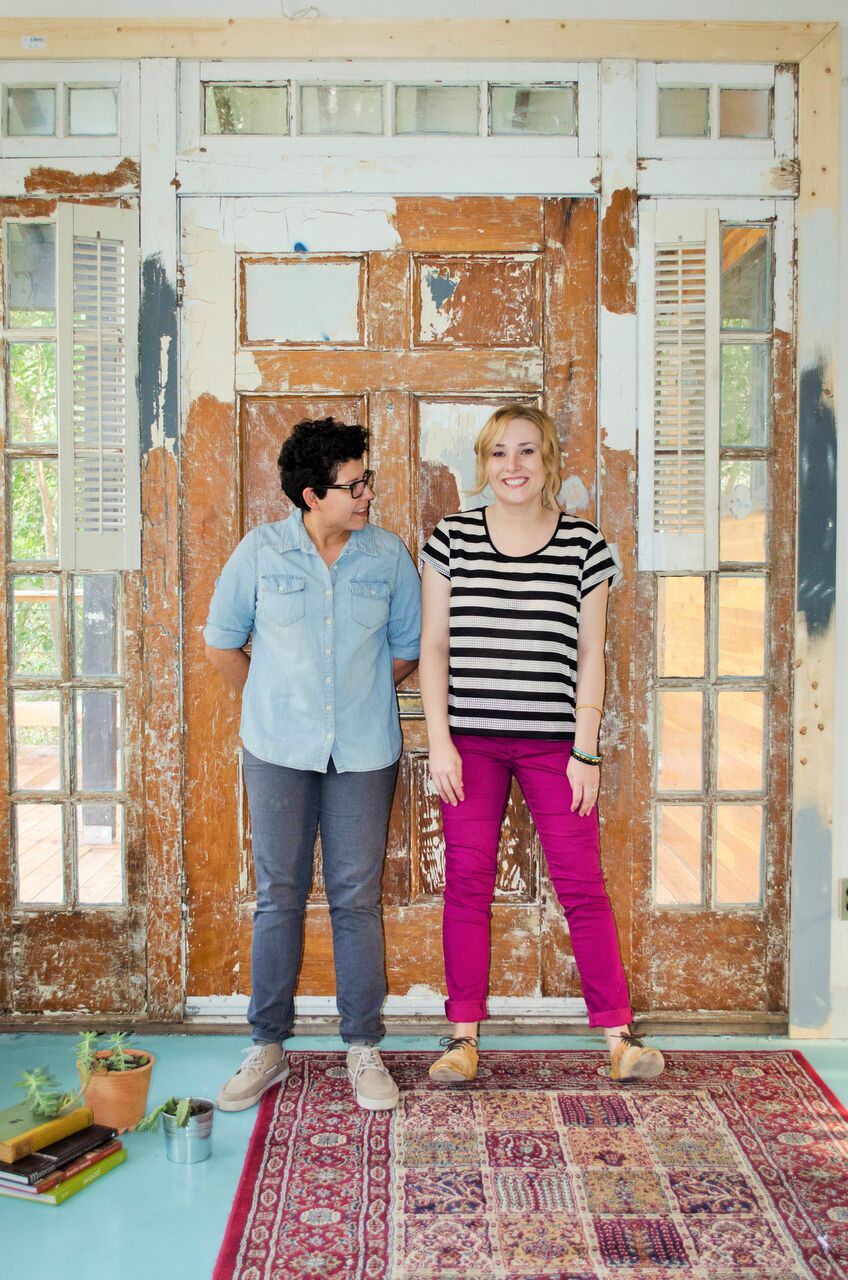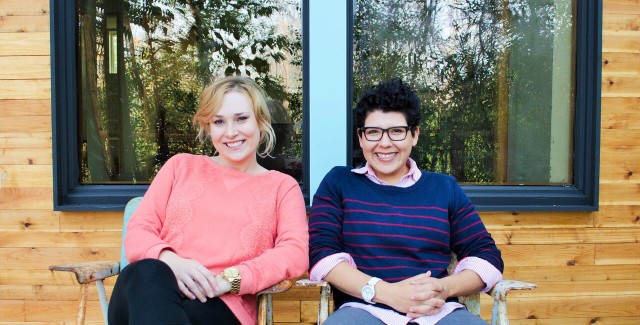For Gay Spouses, the First Tax Season Together Is Cause for Celebration
By Destinee Harrison
Reporting Texas

After marrying last summer, Kristen Harper (left) and Michelle Flores filed their taxes jointly this year, hoping to get their first rebate in the 10 years they have been a couple. Photo courtesy of Kristen Harper
By Destinee Harrison
For Reporting Texas
Kristen Harper married her partner Michelle Flores last summer “when all the gays did: June 26.”
Harper, 34, and Flores, 39, have been living as a couple for 10 years. They also own an Austin business together, a remodeling and construction company called Remodeling Boutique.
But they could not wed until the Supreme Court sanctioned same-sex marriages nationwide in its Obergefell vs. Hodges ruling last June. That decision, a landmark for gay rights, has also allowed gay couples to reap the economic benefits of holy matrimony.
Gay couples can now share their wealth if they get married. Income, debts and property acquired during the marriage can be jointly owned. They can also file their taxes jointly and claim Social Security spousal benefits.
Harper and Flores have combined their finances and filed their tax return jointly this year for the first time. By doing so, they are also hoping to get their first tax rebate.
“Before, we filed separately and both ended up paying a very high tax rate,” Harper said. “We understood we would [now] be able to finally file jointly and put documents in our name together like our mortgage and have certain other rights for our business.”
Harper and Flores’s combined income pushes them into a higher tax bracket. But as a couple, both can claim sole ownership of their business, a tax advantage “that saves us a lot of money,” Harper said.
Prior to the Supreme Court decision, gay couples who married in states where same-sex marriage was legal had no access to federal benefits. For couples in states such as Texas, which did not permit gay marriages until the Supreme Court ruling, the financial benefits are even more considerable.

Harper (left) and Flores. Photo courtesy of Kristen Harper
Patricia Cain, a professor at California’s Santa Clara Law School who specializes in federal law and sexuality, said the difference in Social Security-related benefits for gay couples would be particularly high in Texas.
“Since Texas does not have a state income tax, marital status for tax purposes has been pretty much irrelevant at the state level,” Cain said. “However, there is huge impact regarding Social Security spousal benefits, since the Social Security Administration would only recognize a marriage that was valid in the state of domicile.”
Charles Hilz, 66, of Leander, married his 75-year-old husband, who declined to give his name, in Canada in 2005.
Last summer, Hilz applied for his Social Security retirement benefits. But he soon realized that his newly-recognized marriage would allow him to claim Social Security spousal benefits as well.
“When the Supreme Court passed same-sex marriage, I withdrew my application (for individual retirement) and applied for spousal benefits to allow my own monthly benefits to increase,” said Hilz.
Social Security individual and spousal retirement benefits may be claimed once a person turns 62. At that age, however, the claimant only receives 75 percent of individual benefits and 35 percent of spousal benefits. To receive full benefits, a person must wait until the age of 66 to apply for retirement.
“It took a total of six months from when I applied,” said Hilz, who applied again in October. “Social Security had to get a ruling from the state because the marriage was performed in Canada.”
But not all same-sex couples are living happily ever after since the ruling. Cultural prejudice against gay relationships remains, and it affects their finances too.
Amy R. Cook, a certified public accountant for more than 20 years and the vice chair with the Austin Gay and Lesbian Chamber of Commerce, said even though her clients have the same rights as heterosexual couples, they have to deal with intolerance while filing their taxes jointly.
“I’ve had clients come up to me and say that they went to other firms where they say, ‘OK, I will do your tax returns, but I don’t approve of your lifestyle,’” Cook said. “And I can’t imagine trusting those people, let alone giving them money to do something for me.”
Harper and Flores, however, are happy to be on the same playing field as the rest of the country.
“We will definitely be able to gain the financial advantages so many of our other colleagues and friends and heterosexual peers have been able to take advantage of for the past 10 years, Harper said.”